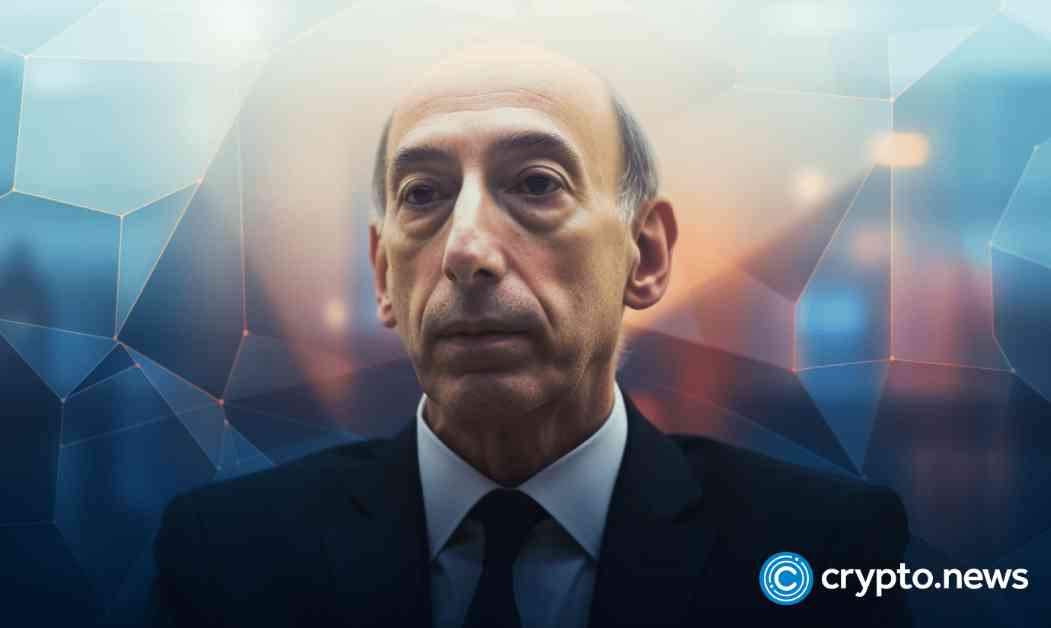Crypto Oversight Challenges: SEC Commissioners Testify Before Congress
The U.S. Securities and Exchange Commission (SEC) found itself under intense scrutiny during a recent full congressional hearing where all five SEC commissioners, including chair Gary Gensler, were grilled on the agency’s regulatory approach towards cryptocurrencies. The hearing marked the first time since 2019 that the SEC commissioners appeared before the U.S. House Financial Services Committee to discuss crypto oversight.
Chair Gary Gensler, known for his skepticism towards cryptocurrencies, was at the center of the criticism, with lawmakers questioning the SEC’s aggressive enforcement actions in the crypto space. Industry proponents and some politicians have long argued that the SEC’s policies have created uncertainty within the nascent crypto industry.
Commissioner Hester Peirce, a vocal advocate for clearer regulatory guidelines in the crypto space, highlighted the agency’s failure to provide regulatory clarity despite having the necessary tools to do so. She criticized the SEC’s ambiguous language regarding blockchain-based virtual currencies like Ethereum (ETH), which has only added to the confusion surrounding regulatory oversight.
Representative French Hill echoed Peirce’s concerns, accusing the SEC of preempting Congress on crypto regulation and taking overly broad enforcement actions. Hill emphasized the need for statutory assistance from Congress to establish a comprehensive regulatory framework, especially given the SEC’s reluctance to engage in rulemaking.
The debate over terminology also came to the fore during the hearing, with Rep. Tom Emmer criticizing Chair Gensler for introducing terms like “crypto asset security.” The SEC recently backtracked on this terminology and pledged to avoid using it in future litigations, acknowledging the need for clearer language in regulatory discussions.
Congressional Pressure Mounts on SEC and Gensler
The congressional hearing, titled “Oversight of the Securities and Exchange Commission,” followed a previous meeting where the SEC’s approach to digital assets was heavily scrutinized. Former SEC commissioner Dan Gallagher, now serving as Robinhood’s Chief Legal Officer, highlighted the lack of regulatory clarity from the SEC when his company attempted to register as a digital asset exchange.
Gallagher’s testimony, along with the criticism from lawmakers and private advisors, underscored the need for congressional intervention to address the SEC’s regulatory shortcomings in the crypto space. The call for clearer guidelines and a more transparent regulatory process has been growing louder within the industry.
Republican lawmakers, led by Committee chair Patrick McHenry, have been particularly vocal in demanding accountability from regulatory bodies like the SEC, Federal Reserve, Federal Deposit Insurance Corporation, and Office of the Comptroller of the Currency. Calls to revoke Staff Accounting Bulletin 121, which has been the subject of controversy within the crypto industry, have intensified in recent weeks.
The SEC’s handling of SAB 121 exemptions, particularly in closed-door meetings with select companies, has raised concerns about favoritism and unfair competition in the digital asset custody market. Industry participants have accused the SEC of picking winners and losers through these exemptions, further fueling the debate over regulatory oversight.
The Road Ahead: Challenges and Opportunities for Crypto Regulation
As the debate over crypto regulation continues to unfold, the need for clear guidelines and effective oversight has never been more urgent. The SEC, under the leadership of Chair Gary Gensler, faces mounting pressure from lawmakers, industry stakeholders, and the public to provide a more transparent and consistent regulatory framework for cryptocurrencies.
The upcoming discussions on stablecoin policies, led by Chair Patrick McHenry and Ranking member Maxine Waters, could pave the way for a comprehensive regulatory framework that addresses the challenges and opportunities presented by the growing crypto market. Experts from Bitwise and the S&P have highlighted the transformative potential of such regulations in shaping the global digital economy.
In conclusion, the recent congressional hearing and ongoing debates surrounding crypto oversight underscore the complexities and challenges of regulating a rapidly evolving industry. As regulators, industry stakeholders, and policymakers continue to navigate this landscape, the need for collaboration, clarity, and effective oversight remains paramount in ensuring the long-term sustainability and growth of the crypto market.

